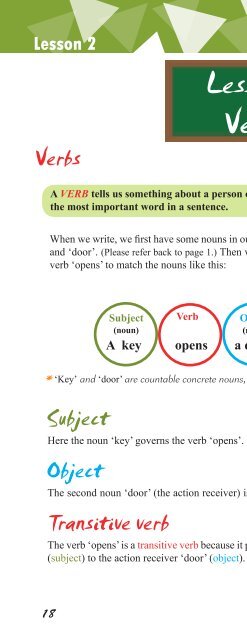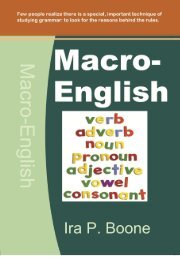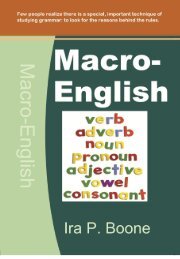English for the Eager Learners
You also want an ePaper? Increase the reach of your titles
YUMPU automatically turns print PDFs into web optimized ePapers that Google loves.
Lesson 2<br />
18<br />
Lesson 2<br />
Verbs<br />
A VERB tells us something about a person or thing and is<br />
<strong>the</strong> most important word in a sentence.<br />
When we write, we first have some nouns in our mind, such as ‘key’<br />
and ‘door’. (Please refer back to page 1.) Then we look <strong>for</strong> a suitable<br />
verb ‘opens’ to match <strong>the</strong> nouns like this:<br />
Subject<br />
(noun)<br />
Verb Object<br />
(noun)<br />
A key opens a door.<br />
*<br />
‘Key’ and ‘door’ are countable concrete nouns, which need an article ‘a’.<br />
Here <strong>the</strong> noun ‘key’ governs <strong>the</strong> verb ‘opens’. It is subject (<strong>the</strong> action doer) of <strong>the</strong> verb.<br />
The second noun ‘door’ (<strong>the</strong> action receiver) is <strong>the</strong> object governed by <strong>the</strong> verb ‘opens’.<br />
Transitive verb<br />
The verb ‘opens’ is a transitive verb because it passes <strong>the</strong> action from <strong>the</strong> action doer ‘key’<br />
(subject) to <strong>the</strong> action receiver ‘door’ (object). A transitive verb must take an object.




